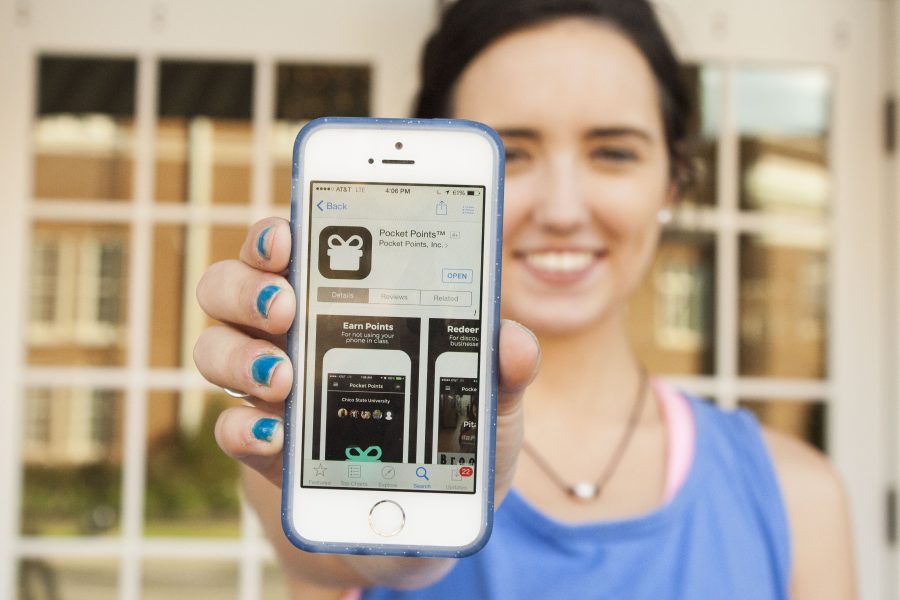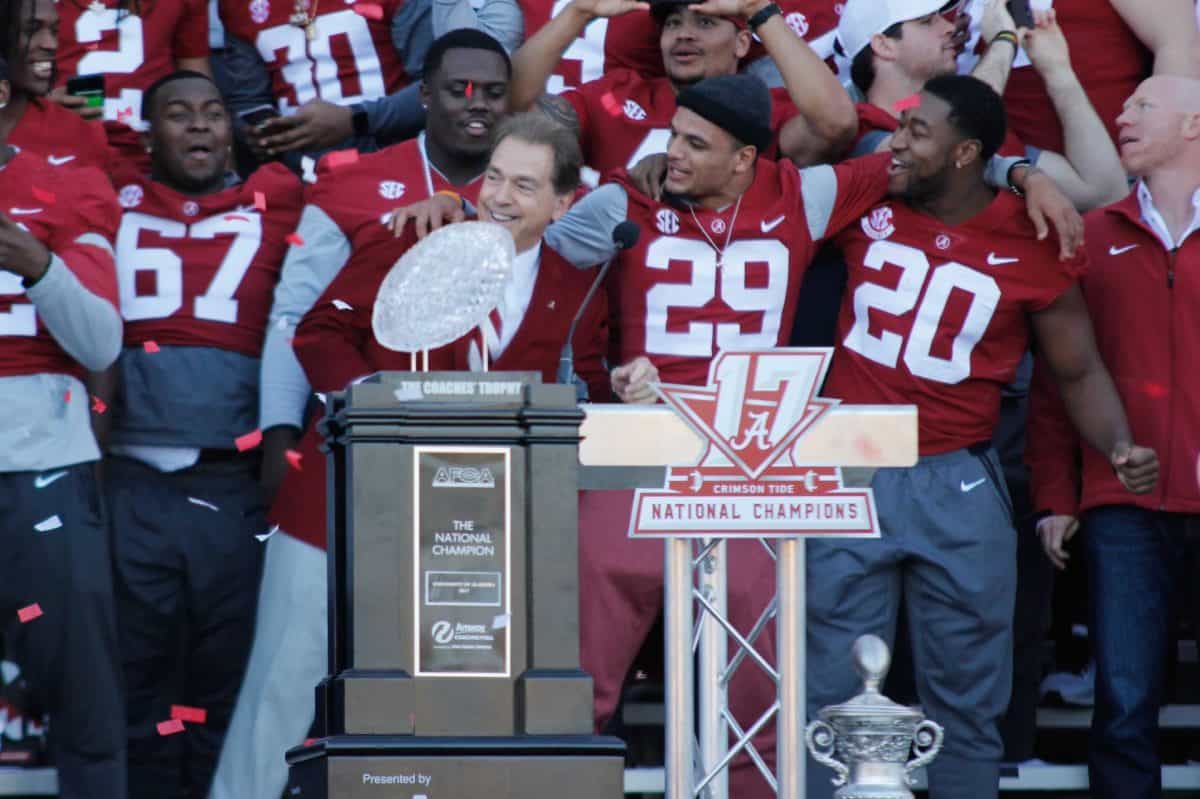Earn more for doing less. Those are the words that greet you when you open the increasingly popular app, Pocket Points. The premise of the app is simple–students open it in class and receive points when they pay attention to their professor instead of their phones. If that slogan sounds familiar, it is because nearly 3,500 students at The University of Alabama are already using it, despite it coming to campus only a few weeks ago.
The app was created in 2014 by Rob Richardson, CEO, and Mitch Gardner, COO. They were both students at California State University, Chico when the app was created. Richardson was a sophomore computer science major at the time and Gardner was a junior business marketing major.
“We saw that there were so many people on their phones in class, and we decided to fix that problem,” said Gardner.
They launched Pocket Points on their campus, and 30 percent of the student body at Chico State began using the app.
“I think the app resonates with students because it solves some problems. First, that people are addicted to their phones, and second that college students are always looking to save money,” Gardner said.
Despite being on over 100 university campuses, Gardner still has goals for the future of the company. He wants to enable every student in college to use Pocket Points. In addition he wants to keep adding different businesses every week or month, so that there are always new rewards.
“We’re also focused on forming a symbiotic relationship between small businesses and college students,” Gardner said.
Part of their growth is their on-campus representatives including Donica Burton, a brand ambassador for Pocket Points. Over the past summer she interned for the company, learning about how to encourage local businesses and students to get involved with the company. Burton talked with classes, fraternities and sororities to try to illicit interest. However, she said word of mouth has been the company’s most powerful marketing tool.
“I think its popular because students have such a hard time paying attention in class, and when they hear of something that helps, they’re interested,” Burton said.
Pocket Points works by using geosensing, and when someone is in an academic building it starts counting down until a “point” is earned. The longer a student keeps their phone locked the faster they receive the next point. Typically it takes 20 minutes to earn a point, and most rewards are between 10 to 35 points. After someone purchases a coupon with their points, they have 24 hours to redeem it.
When I first downloaded the Pocket Points app, I was skeptical of its ability to deter me from using my phone. I am by all means a studious individual, however I check my phone frequently to see the time, and then read my texts, and then my email, and before I know it I’ve spent ten minutes on my phone. For the first day, Pocket Points did not solve this issue. I actually looked at my phone more frequently, wanting to watch the box fill up, see how long I kept my phone closed, and calculate down to the second when I would receive my next point.
Luckily by the second day the novelty of the app wore off. I locked my phone and forgot about it, and only when I went to check my phone did I remember that the app was still running. I still used my phone, but the app made me more aware of how frequently I was checking it. That is why I believe this app will persist, because it uses positive reinforcement—there is no consequence for using your phone, but there are major rewards if you do not.
This app also encourages students to get their friends to download the app, as the more students that use the app the less time it takes for anyone to earn a point.
“So the more popular this app becomes,” Burton said, “The more beneficial it is for everyone involved.”







